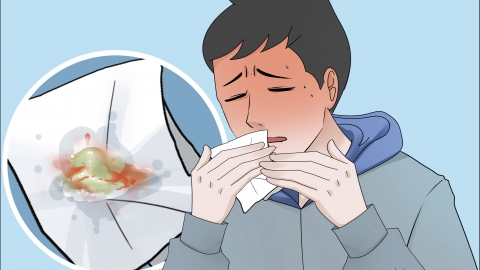Microscopic features of the red hepatization stage of lobar pneumonia
Microscopic features of the red hepatization stage of lobar pneumonia include alveolar spaces filled with numerous red blood cells and fibrin, dilated and congested capillaries in the alveolar walls, fibrinous exudation, interconnected fibrin strands, and infiltration of neutrophils and macrophages. If discomfort occurs, prompt medical attention is recommended. Detailed analysis is as follows:

1. Presence of numerous red blood cells
The alveolar spaces are filled with large numbers of red blood cells. These cells form a mesh-like structure, causing the exudate to appear solid and liver-like in consistency—hence the term "red hepatization stage."
2. Dilated and congested alveolar wall capillaries
At this stage, due to the inflammatory response, capillaries within the alveolar septa become dilated and engorged with blood. This feature reflects active inflammation and causes the alveolar walls to appear redder and more swollen.
3. Fibrinous exudation
The alveolar spaces are also filled with fibrin, which is formed when enzymes released by inflammatory cells break down proteins within the alveoli. This fibrin, together with red blood cells, neutrophils, and macrophages, constitutes the characteristic pathological features of the red hepatization stage.
4. Interconnection of fibrin strands
Fibrin strands can extend through the alveolar septa and connect with the fibrin network in adjacent alveoli. This facilitates the spread of inflammation and contributes to structural changes in lung tissue. The interwoven fibrin forms a solid, mesh-like exudate resembling the texture of liver tissue.
5. Infiltration of neutrophils and macrophages
In addition to red blood cells and fibrin, small numbers of neutrophils and macrophages also infiltrate the alveolar spaces. These inflammatory cells play a role in phagocytosing bacteria and other pathogens, forming an essential part of the inflammatory response.
Patients are advised to follow medical guidance promptly and use medications such as Penicillin V Potassium Tablets, Amoxicillin Capsules, or Levofloxacin Hydrochloride Capsules. Additionally, adequate rest should be maintained, and overexertion should be avoided.








